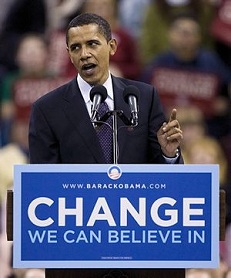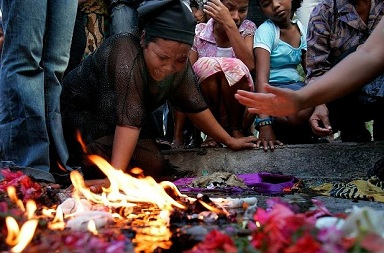Obama Reeks Duplicity

Like most in Congress, he serves wealth and power alone. People needs don't matter. Rule of law principles are spurned. Peace is deplored. War is official policy. So are other duplicitous foreign policies for unchallenged global dominance. Imagine what's ahead in a second term, regardless of which party controls Congress. Both are in lockstep on issues mattering most. They include pursuing regime change in Syria and Iran.
At the same time, Obama delivers mixed messages on Iran. Conciliatory comments follow baseless accusations and hawkishness, then more threats. In late March, he appealed directly to Iranians, saying there's "no reason for the United States and Iran to be divided from one another."
America seeks dialogue, not confrontation, he suggested, or did he? At the same time, he added:
"Increasingly, the Iranian people are denied the basic freedom to access the information that they want."
"Instead, the Iranian government jams satellite signals to shut down television and radio broadcasts. It censors the Internet to control what the Iranian people can see and say. The regime monitors computers and cell phones for the sole purpose of protecting its own power."
In fact, Iranians have legitimate news, information, and analysis media like Press TV. It shames Western scoundrel alternatives, including BBC, and major US print and broadcast services.
In addition, Obama and Congress support bills targeting Internet freedom. Something this year will pass. Net Neutrality will be compromised, perhaps en route to destroying it altogether and remaining First Amendment rights with it.



























